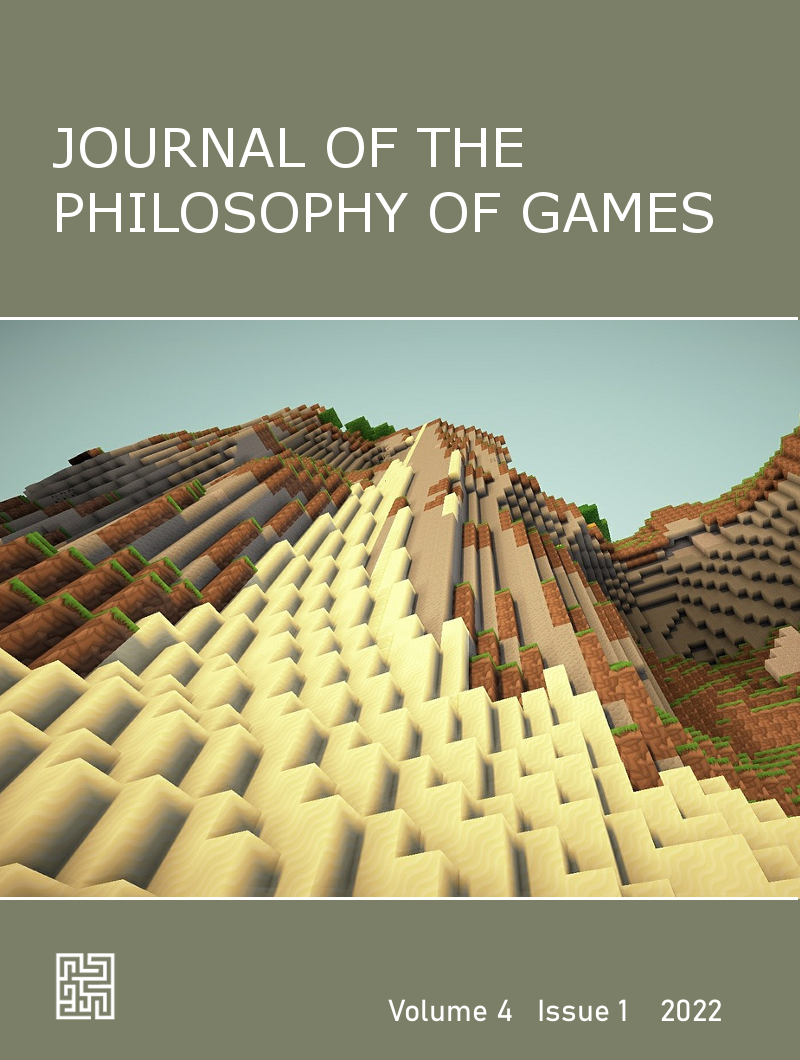Is Fun A Matter of Grammar?
DOI:
https://doi.org/10.5617/jpg.9438Abstract
This paper outlines an analysis of the word ‘fun’, as it is used in everyday English sentences to describe various activities and asks why some things are labeled as fun while others seem unable to be properly described as such. One common unspoken idea, for example, is that a fun activity is deemed fun due to having a particular phenomenology, in a way that might be comparable to being in a ‘flow state’. Due to the trouble such psychological accounts of fun have in explaining both the precise conditions of fun and also why some activities are thought to be enjoyable but not fun, a deflationary theory is instead introduced.
This proposed alternative account suggests that the use of the word ‘fun’, when describing activities in English sentences, signals that the sentence is a generic sentence, an idea based on a semantic distinction made by Greg Carlson (1989). Further, it is argued that the words ‘pleasurable’ and ‘enjoyable’ are reserved for non-generic sentences, leaving the use of the word ‘fun’ to signal something akin to a grammar relation, rather than referring to a feeling or psychological state.
References
Bogost, I. (2016). Play Anything: The Pleasure of Limits, the Uses of Boredom, and the Secret of Games, Basic Books.
Brooker, W. (2005). "Everything Will Flow." Retrieved April 21st, 2019, from https://www.flowjournal.org/2005/03/everything-will-flow/.
Bühler, K. (2013). The Mental Development of the Child: A Summary of Modern Psychological Theory. Oxford, Routledge.
Carlson, G. N. (1989). On the semantic composition of English generic sentences. Properties, types and meaning, Springer: 167-192.
Csikszentmihalyi, M. (2008). Flow: The Psychology of Optimal Experience. New York, HarperCollins eBooks.
de Grazia, S. (1962). Of Time, Work, and Leisure. New York, Twentieth Century Fund.
Dix, A. (2004). Fun Systematically. Twelfth European Conference on Cognitive Ergonomics, ECCE-12.
Fincham, B. (2016). The Sociology of Fun. UK, Palgrave Macmillan.
Groos, K. (2017). "The Play of Man." Retrieved October 24th, 2017, from https://brocku.ca/MeadProject/Groos/Groos_1901/.
Huizinga, J. (2003). Homo Ludens: A Study of the Play-element in Culture. London, Routledge.
Hunicke, R., et al. (2004). MDA: A formal approach to game design and game research. AAAI Workshop on Challenges in Game AI.
Koster, R. (2005). A Theory of Fun for Game Design. Scottsdale, AZ, Paraglyph Press.
McQuillan, J. and G. Conde (1996). "The Conditions Of Flow In Reading: Two Studies Of Optimal Experience." Reading Psychology 17(2): 109-135.
Monk, A., et al. (2002). Funology: designing enjoyment. CHI'02 Extended Abstracts on Human Factors in Computing Systems, ACM.
Nakamura, J. and M. Csikszentmihalyi (2014). The Concept of Flow. Applications of Flow in Human Development and Education: the Collected Works of Mihaly Csikszentmihalyi. Dordrecht, Springer: 239-263.
Pieper, J. (2009). Leisure: The Basis of Culture. San Francisco, CA., Ignatius Press.
Podilchak, W. (1991). "Distinctions of fun, enjoyment and leisure." Leisure Studies 10(2): 133-148.
Privette, G. (1983). "Peak experience, peak performance, and flow: A comparative analysis of positive human experiences." Journal of personality and social psychology 45(6): 1361.
Reed, D. (2004). Fun On The Phone: The Situated Experience Of Recreational Telephone Conferences. Funology: From Usability to Enjoyment. M. A. Blythe, K. Overbeeke, A. F. Monk and P. C. Wright. Netherlands, Springer: 67 - 80.
Salen, K. and E. Zimmerman (2003). Rules of Play: game design fundamentals. Cambridge, MA., MIT Press.
Slaughter, D. C. (1983). A Fun Scale and Its Possible Application. ProQuest Dissertations & Theses Global. (303194807). Retrieved from http://ezproxy.deakin.edu.au/login?url=http://search.proquest.com/docview/303194807?accountid=10445 database.
Sorenson, N. and P. Pasquier (2010). "The evolution of fun: Automatic level design through challenge modeling." Proceedings of the First International Conference on Computational Creativity (ICCCX). Lisbon, Portugal: ACM: 258-267.
Trafton, D. A. (1985). In Praise of Three Traditional Ideas of Leisure. Transitions to Leisure: Conceptual and Human Issues. B. G. Gunter, J. Stanley and R. N. S. Clair. Lanham, MD., University Press of America.
Wolfenstein, M. (1951). "The emergence of fun morality." Journal of Social issues 7(4): 15-25.
Downloads
Published
Issue
Section
License
Authors who publish with this journal agree to the following terms:
- Authors retain copyright in their articles and grant the Journal of the Philosophy of Games (JPG) right of first publication with the work simultaneously licensed under the following licence: Creative Commons Licence : CC BY-NC-ND 4.0. The licence allows others to share the work for non-commercial purposes with an acknowledgement of the work’s authorship and initial publication in this journal, but does not allow others to create derivative works based on the work without the author’s permission.
- Authors are allowed to enter into separate, additional contractual arrangements for the non-exclusive distribution of the journal’s published version of the work (e.g., post it to an institutional repository or publish it in a book), provided that such distribution includes an acknowledgement of the article’s initial publication in JPG.
- Authors are permitted and encouraged to post their work online (e.g., in institutional repositories or on their website) prior to and during the submission process, as it can lead to productive exchanges, as well as earlier and greater citation of published work (See The Effect of Open Access). Authors who distribute their work after its acceptance by JPG but prior to its publication agree to indicate on the manuscript that it will be published in JPG. Authors agree that they will not publish their work in any other journals, anthologies, or monographs before the date on which their work is published by JPG.
- Authors grant JPG a royalty-free, non-exclusive, perpetual, worldwide license to create derivative works based on their articles and to publish their articles or any part of their articles in compilations and anthologies.
In special cases, it may be possible for the author to negotiate an open licence other than the CC BY-NC-ND.



